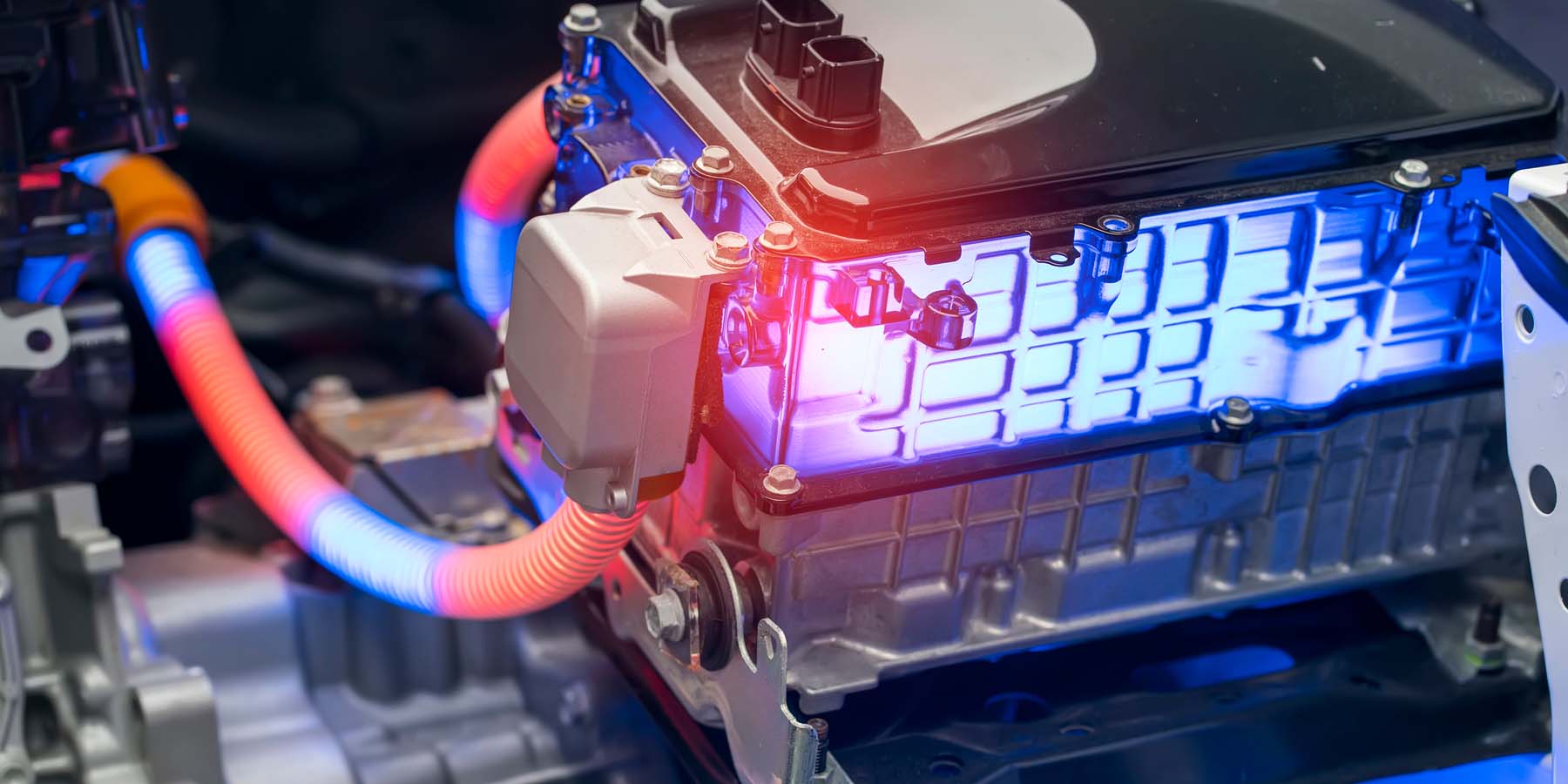The EV Revolution is in full-swing right now.

Tesla has passed the trillion-dollar valuation mark. Lucid just rolled out its first cars with 500-plus miles of driving range. Rivian just had the biggest initial public offering (IPO) since Facebook. Every legacy automaker — from Ford, to GM, to Volkswagen — is investing tens of billions of dollars into electrifying their fleets.
The EV Revolution has arrived.
But here’s the thing: The EV Revolution won’t go mainstream until we make better batteries.
That harsh reality here is that while batteries make things work, today’s batteries are keeping EVs from working as well as they could.
Sure, it seems counterintuitive, but its absolutely true, and to understand why, we need to take a quick trip back to chemistry class.
Batteries comprise three things. A cathode, an anode, and an electrolyte. Batteries work by promoting the flow of ions between the cathode and anode through the electrolyte.
Conventional lithium-ion batteries – which are currently the dominant status quo in smartphones, smartwatches, electric cars, so on and so forth – are built on liquid battery chemistry.
That is, they comprise a solid cathode and anode, with a liquid electrolyte solution connecting the two.
These batteries have worked wonders for years. But, due to the physical constraints of dealing with a liquid electrolyte, they are now reaching their limit in terms of energy cell density – which basically means that if we want our phones, watches, and electric cars to last longer and charge faster, we need a fundamentally different battery.
Insert the solid-state battery.
With solid-state batteries, the name pretty much says it all. Take the liquid electrolyte solution in conventional batteries. Compress it into a solid. Create a small, hyper-compact solid battery that – because it has zero wasted space – lasts far longer and charges far faster.
Of course, the implications of solid-state battery chemistry are huge.
Solid-state batteries could be the key to making our phones sustain power for days… enabling our smartwatches to fully charge in seconds… and, yes, allowing electric cars to drive for thousands of miles without needing to recharge.
That’s why solid-state batteries are dubbed by insiders as “forever batteries” — and it is why these forever batteries are the critical technology needed to propel the EV Revolution into its next phase of supercharged growth.
But making solid-state batteries is a complex and costly science – and no one has figured out how to affordably or sustainably do it.
Until now.
Several promising tech startups have made significant technical progress over the past several years in the construction of viable, effective solid-state batteries. One of them — QuantumScape (QS) — has basically solved the problem.
The biggest hurdle with solid-state batteries is something called “dendrites,” which are small cracks that form in the solid electrolyte during charging and recharging, and which eventually get so big that they short-circuit the battery. The big breakthrough in solid-state batteries, thus, lies in developing a solid electrolyte material that is dendrite-resistant.
About a year ago, QuantumScape said they had done just that. The company released internal testing data which illustrated as much. QuantumScape stock soared from $10 to $130 in a matter of weeks.
But QuantumScape stock proceeded to collapse back to $20 as investors began to question the legitimacy of the company’s internal data. After all, it had yet to be publicly verified by a third-party. Maybe QuantumScape was exaggerating about its performance?
Such fears have disappeared over the past month, though, as QuantumScape released third-party testing data that validated its internal data, and broadly underscored that, indeed, QuantumScape has created small-scale solid-state batteries which work.
The big picture here is that the technical progress being made in solid-state battery chemistry is not being overstated. It’s legitimate. It’s happening. And over the next few years, this emerging technology is going to forever change the EV industry — and, indeed, forever change the entire electronics world.
Some of the stock market’s biggest winners in the 2020s will be solid-state battery makers.
QuantumScape projects as one of those mega-winners. But it won’t be alone, and in fact, it won’t be the biggest winner.
Rather, that title is reserved for a tiny, completely unheard-of solid state battery maker whose stock is trading for less than $3 right now.
Less than $3… and this company could potentially change the world over the next decade.
Clearly, the upside potential in this tiny stock is enormous — so big, in fact, that unlike QuantumScape, I can’t write its name in this post.
But, I did just give a presentation at the landmark Hudson Theater in Southern California, where I told a group of 60 people all about this tiny tech stock.
And right now, I’m going to pull back the curtains on that event and give you a front-row seat to learning about the small, $3 stock at the epicenter of the biggest technological revolution of our lifetimes.
Click here to learn more.
On the date of publication, Luke Lango did not have (either directly or indirectly) any positions in the securities mentioned in this article.
